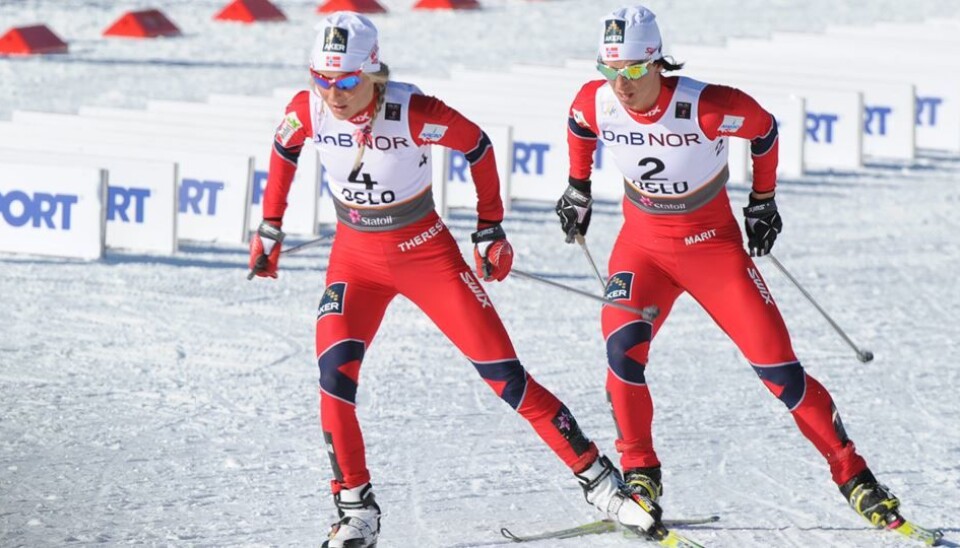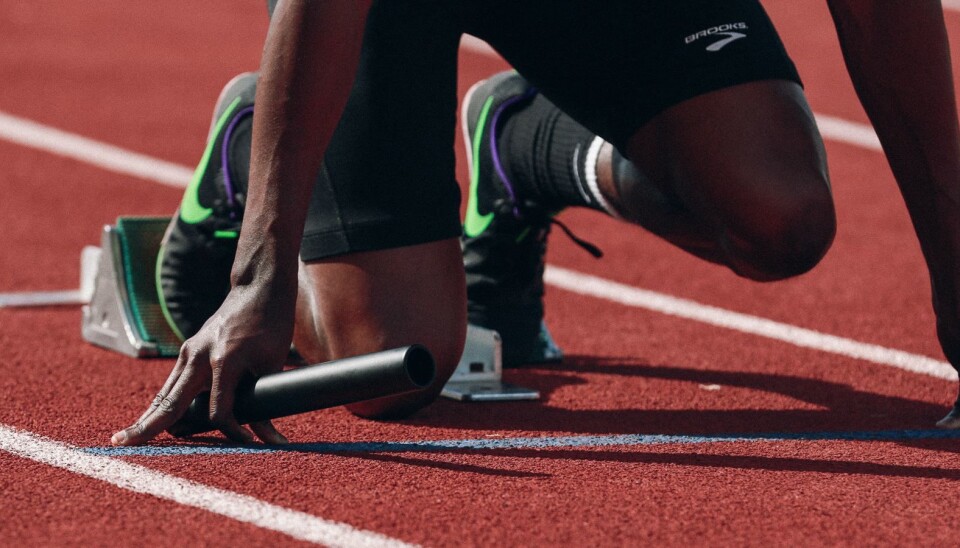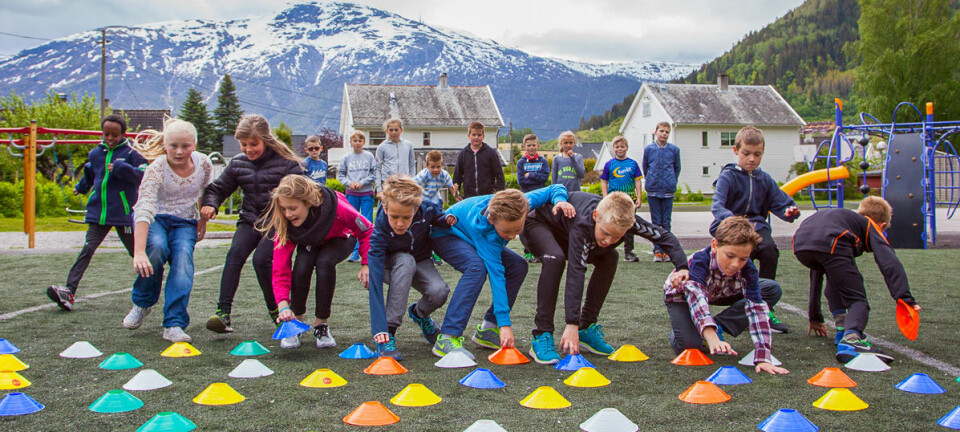This article was produced and financed by The Norwegian School of Sport Sciences - read more

Doping in sports is not about individual morals, it’s about problems in the entire organisation
"Athletes found guilty of doping should not be made into scapegoats", says researcher. If we want to eliminate doping, the sporting organisations have to act more responsibly.
“The world of top-level sports will benefit from a new understanding of doping and anti-doping, one that differs from the commonly held view,” claims Morten Renslo Sandvik. This is the subject of his doctoral thesis, which he defended at the Norwegian School of Sport Sciences (NIH) in June.
“My goal has been to develop a new mindset or philosophy that could make anti-doping efforts both more productive and ethically justifiable: What would happen if we stopped viewing anti-doping as a method to prevent cheating, and rather as a tool with which to promote solidary within the sporting community?”

A path ahead
One solution is a philosophy that takes a different path than judging those who cheat, but instead requires us to listen to what the athletes have to say.
So should we accept cheap excuses and failure to accept responsibility from these athletes?
“If we want to make progress, we have to listen to what they have to say. Listen to their stories, the reasons why they started doping. The reasons are much more extensive than just wanting to be best,” says Renslo Sandvik.
He believes that we do not focus enough on all the persons surrounding the top-level athletes and has therefore concentrated on this group.
“In principal, the stories these athletes tell us involve structural factors, working conditions, contracts and the actual organisation of top-level sports. In my thesis, I present an argument in support of an approach that takes these narratives seriously. This is much more productive than merely focusing on the hunt, testing and penalties.”

Fixation
Renslo Sandvik believes that the common approach in the anti-doping movement and large sectors of top-level sports is dominated by dogmatic descriptions of doping as a moral problem.
“The fact that so much responsibility is ascribed to the athletes and their so-called immoral decisions is reflected in the overpowering focus on detecting cases of doping, preferably and literally in the athletes.”
Renslo Sandvik supports a ‘de-moralisation’ – mirroring the current change in how society approaches drug addicts: “Imagine listening without judgement or prejudice to athletes found guilty of doping in the same way that we have started to listen to drug addicts. We have started or are starting to view drug addicts not as criminals but as persons with an illness, resulting in a turnaround in how we address such problems.
Only the athletes themselves can tell us why they actually started doping, if we choose to listen to them. This will make it much easier for us to tackle the problem at its origins.”
Pressure from the media
Therese Johaug is an example of what can happen if we really listen to athletes found guilty of doping. After she was found guilty, a whole number of different statements were made from Norwegian sporting organisations. They highlighted several problematic aspects of the anti-doping system and the way in which doping has developed as a phenomenon in the media.
“Her case opened the door to a new type of political and ethical reflection – for example, more people became aware of how both regulations and mass media coverage can have very negative consequences for athletes, even when they have not taken doping deliberately”, says Renslo Sandvik.
Russian doping – a difficult issue
One difficult example is Russian doping. After the Winter Olympics in Sotsji, it emerged that Russia was guilty of systematic doping among their athletes.
“How is it possible for the international sporting organisations to prevent such events in the future without the narratives of the athletes themselves? These would provide much more information on the underlying causes,” claims Morten Renslo Sandvik, going on to add:
“This is a complex example, as it requires more than just the willingness to listen, but also just encouraging the athletes to tell their stories. Very few Russian athletes are prepared to talk. This is a problem, as such information could provide insight into the actual social and structural aspects of Russian sports. It could also provide a much stronger platform for the sporting organisations when dealing with what could otherwise perhaps be a permanent doping problem.”

Essential to provide security
Renslo Sandvik nonetheless claims that it is among those athletes who have deliberately made use of doping that we can learn the most about the underlying factors. As part of his thesis, he has studied the issues that have emerged from the narratives of road cyclists who took performance enhancing drugs in the 1990s and early 2000s.
“One key underlying factor is that top level sports is an extremely attractive career, where many are prepared to ‘make significant sacrifices’ to be a part of this world. At the same time, however, this is far from a safe career choice and only a small minority achieve success.
The sporting organisations, not just for cyclists, should definitely study how they can safeguard their athletes in the long term, provide them with more security, better rights and more influence in what is predominantly a short-term and insecure industry.”
A community
Isn't it almost impossible, however, to eliminate the competitive aspect of sports? It is in the end a matter of winning.
“That’s not my intention", assures Renslo Sandvik.
"But there is a lot that can be done about the athletes’ ‘working conditions.”
Sandvik claims that it is up to the sporting organisations to ensure that top athletes feel part of a sporting community that is larger than the immediate network of team-mates and coaches, and that their interests are protected by means of improved rights and political representation.
“By steadily increasing solidarity among athletes for their sport as a whole, I believe it is possible to see the disintegration of the deeper structures that are the real and main underlying causes of doping.”
Less mistrust, more trust
So what about trust, both from the general public and other athletes? You cannot create trust just with stories and pretty words.
“I don’t have a good answer to that. It can be difficult for individual athletes to win back trust once it has been lost. But that is also the situation today,” he points out. One example is harassment of cyclists who do well in the Tour de France. The spectators lining the roads shout out doping accusations at them, even when they have tested negative in numerous tests.
“If we are able to ‘de-moralise’ doping, I believe that the lingering doubts about individual athletes will gradually disappear. At least, mistrust will not have such negative consequences as today.”
But will we be able to eliminate doping if we merely follow these proposed measures?
“This is a complex process. I don’t expect to see a revolution, but I am convinced that we will achieve more progress if we also listen to those who are closest to the actual act of doping”, asserts Renslo Sandvik.
Reference:
Morten Renslo Sandvik, Anti-doping as solidarity A philosophical inquiry into anti-doping in elite sport. PhD NIH, 2020.
———


































